BMW has claimed they have stopped selling diesel engines in some parts of the world because emission regulations constrain them. However, it does not mean that the earlier diesel variants produced by the company are no longer in the market. Several markets all over the globe still have vehicles with diesel engines, but no new vehicles are being introduced.
The top five reliable BMW diesel engines include:
- N47-BMW diesel engine
- M-57-BMW diesel engine
- M-42 BMW diesel engine
- S-54 BMW diesel engine
- S-65 BMW diesel engine
In this article, I’ll showcase five exceptional BMW diesel engines that go beyond just getting you from A to B.
1. N47-BMW Diesel Engine:
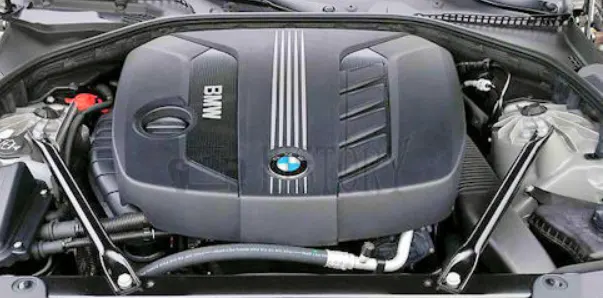
Power and Efficiency in Harmony:
Behind the wheel of models like the 1 Series, 3 Series, 5 Series, and X Series, the N47 engine asserts its dominance with a 2.0-liter punch.
This powerplant is not merely about brute force; it’s a symphony orchestrated to be fuel-efficient while maintaining low emissions. Cruising through diverse terrains, the N47 provides a dynamic driving experience, a harmonious blend of power and environmental consciousness.
Noteworthy Features:
Peeling back the technical layers, the N47 boasts advanced features that contribute to its reliability. The engine’s technological sophistication ensures not only optimal fuel efficiency but also a commitment to reduced emissions.
The incorporation of cutting-edge components aligns seamlessly, exemplifying the meticulous craftsmanship embedded in every BMW.
A Timing Chain Conundrum:
Yet, as with any masterpiece, there are nuances to be acknowledged. Some have encountered an occasional hiccup in the form of timing chain issues.
It’s a critical component, linking the dance of the camshaft and crankshaft. While the majority sail smoothly, a few have faced stretching concerns.
The mystery lingers—whether it’s a design quirk, oil quality, or insufficient maintenance. Addressing this challenge promptly with a replacement is crucial, safeguarding the engine’s longevity.
Maintaining the N47:
Here’s where the driver’s role becomes pivotal. The N47, akin to any high-performance engine, demands attentive care.
Regular oil changes with a keen eye on quality, coupled with diligent overall maintenance, form the bedrock of a trouble-free journey. Yes, the timing chain issue has emerged, but it's not an inherent flaw.
It’s a call to action for meticulous maintenance, ensuring this powerhouse continues to roar effortlessly.
Reliability at Its Core:
In the grand tapestry of BMW diesel engines, the N47 emerges not as a tale of sporadic issues but as a narrative of reliability. The timing chain hiccup, while noteworthy, is not a ubiquitous concern.
Those who champion the N47 are those who understand that a well-maintained engine is a reliable companion, poised for countless adventures.
N47 Features | Details |
Displacement | 2.0L |
Notable Features |
|
Reported Issues |
|
2. M-57-BMW Diesel Engine:
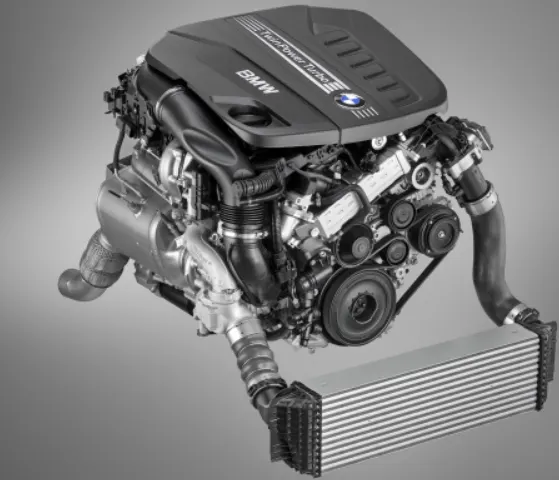
Having spent considerable time behind the wheel of vehicles powered by the M-57 BMW Diesel Engine, it’s not just an engine; it’s a relentless force, an embodiment of raw power, efficiency, and lasting durability.
The Heart of a Performance Beast:
Picture this: you’re accelerating down the highway, and the M-57 roars to life. This 3.0-liter inline six-cylinder engine, manufactured between 1998 and 2008, is not just an apparatus; it’s the beating heart of performance.
Whether it’s the X5, the 3 Series, or the 5 Series, the M-57 does not just power vehicles; it propels them into a league of their own.
A Symphony of Power and Efficiency:
Underneath the hood lies a technological symphony, an OEM sequential turbocharger system orchestrating power delivery.
One turbo takes charge at lower RPMs, seamlessly handing the baton to the second when you demand more. It’s a performance ballet designed to thrill without compromise.
Unveiling the Dual Overhead Camshafts:
The M-57 doesn’t shy away from showcasing its engineering pedigree. With dual overhead camshafts, this engine ensures that speed and performance remain non-negotiable. Every acceleration is a testament to the meticulous design, where comfort never takes a backseat to power.
Carbon Deposits and Swirl Flap Intricacies:
Yet, in the journey of dominance, there are nuances. Some drivers have encountered challenges in the form of carbon deposits and swirl flap issues.
Picture it as the occasional hurdle in a race. It doesn't diminish the prowess of the M-57; it's a cue to pay attention. With the right mechanical expertise, these issues are not roadblocks but rather pitstops for optimization.
Maintenance Rituals:
Every engine, even one as formidable as the M-57, demands a certain ritual of care.
Regular maintenance, an attentive ear for unusual sounds, and a proactive stance against potential issues—are the keys to unlocking the full potential of this powerhouse. It’s not just about driving; it’s about forging a partnership with a machine that rewards dedication.
The Enduring Legacy:
In the landscape of BMW diesel engines, the M-57 is not just an engine of a bygone era; it’s a legacy.
The reported issues aren’t tales of weakness; they are anecdotes that emphasize the need for a symbiotic relationship between driver and machine. A well-maintained M-57 is not just reliable; it’s an investment in an enduring partnership.
M-57 Features | Details |
Displacement | 3.0L |
Notable Features |
|
Reported Issues |
|
3. M-42 BMW Diesel Engine:
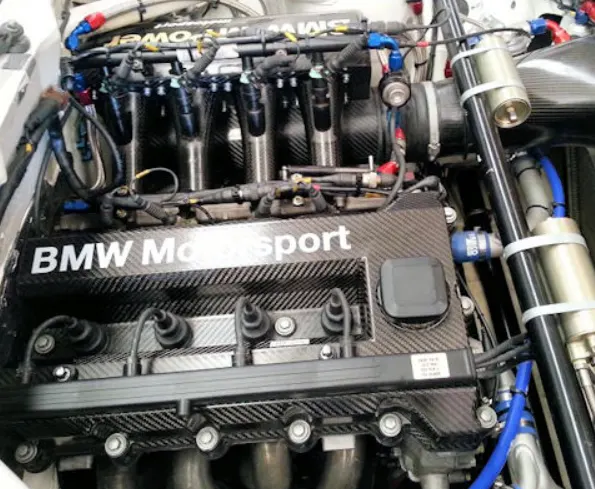
Now, let me guide you through the intricacies of this technological masterpiece:
The Foundation of Power:
Imagine a 1.8-liter inline four-cylinder engine propelling you forward with 138 horses at your command. The M-42 is not just a power source but the foundation of dynamic driving.
Whether cruising through the E30 or E36 models, this engine signifies more than just motion; it signifies controlled and exhilarating movement.
A Glimpse into Precision:
Delve beneath the hood, and the M-42 reveals its commitment to precision.
With a Dual Overhead Camshaft (DOHC) design featuring dual overhead camshafts, this engine is a testament to meticulous engineering. The timing of valves, the orchestration of power—every aspect is a testament to the dedication to precise control.
Four Valves for Superior Efficiency:
Not just satisfied with conventional designs, the M-42 incorporates four valves per cylinder, a characteristic that distinguishes it in terms of airflow and combustion efficiency.
Two valves for intake and two for exhaust signify a commitment to optimizing performance, ensuring that every combustion event is a masterpiece of efficiency.
The Aluminum Advantage:
The M-42 doesn’t just stop at performance; it’s a lesson in material innovation. Crafted with an aluminum block, this engine is not burdened by unnecessary weight.
The result? Enhanced efficiency and a driving experience that feels agile and responsive. It’s not just an engine; it’s a lesson in how materials shape the driving narrative.
In the realm of perfection, challenges are not absent. Some M-42 owners have reported issues with boost hoses, a design quirk that, while present, doesn’t tarnish the overall brilliance of the engine.
Boost leaks, caused by oil vapors mingling with debris on the hose, might pose a hurdle, but with timely intervention, it becomes a solvable puzzle.
Embracing Change:
As with any automotive companion, the M-42 demands a commitment to regular maintenance. Nitrogen oxide sensor failures might present themselves, but they are not insurmountable obstacles. It’s a call for vigilance, an invitation to embrace change and ensure the engine’s longevity.
M-42 Features | Details |
Displacement | 1.8L |
Notable Features |
|
Reported Issues |
|
4. S-54 BMW Diesel Engine:
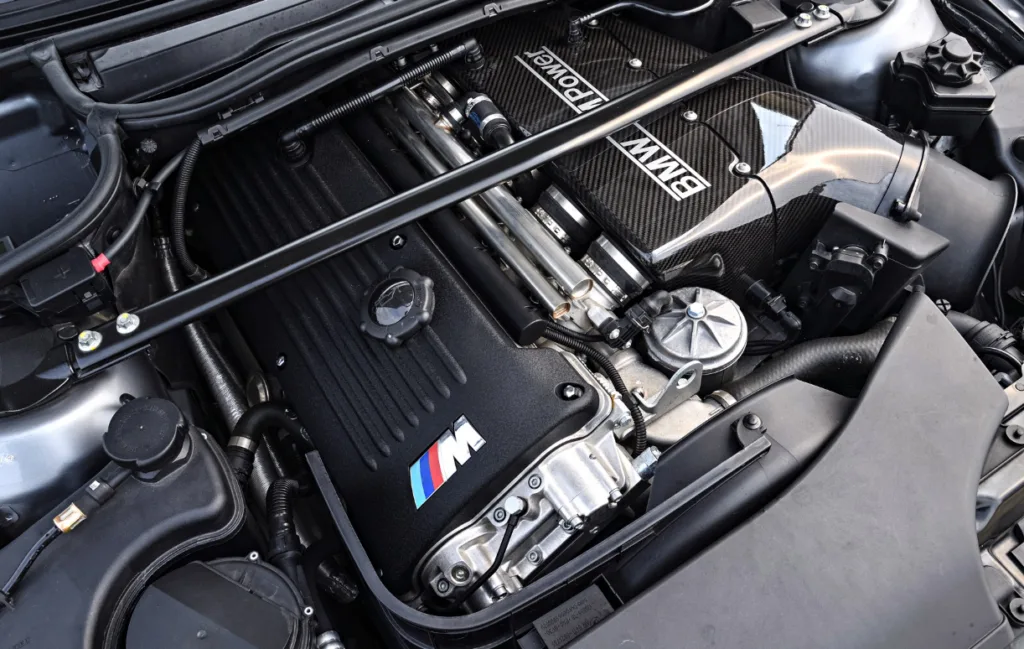
Embarking on the journey with the S-54 BMW Diesel Engine has been nothing short of a revelation—an experience etched in the language of raw power, precision, and a symphony of mechanical brilliance.
The 3.2-Liter Dynamo:
Picture this: the ignition roars to life, and you’re at the helm of a 3.2-liter inline six-cylinder engine, propelling you forward with a commanding 338 horses.
The S-54 graced models of the E-46, heralding an era where performance wasn’t just a feature—it was a way of life.
Individual Throttle Bodies Unleashed:
The S-54 doesn’t just deliver power; it engineers an experience. Equipped with individual throttle bodies for each of its six cylinders, this engine doesn’t just breathe; it inhales with a precision that defines every acceleration.
The result? A throttle response so immediate, it’s akin to a synchronized dance between your command and the engine’s delivery.
High Compression, High Performance:
Delving into the technical nuances, the S-54 boasts a high compression ratio, elevating the performance figures to unparalleled heights.
It's not just about power; it's about the ability to rev at astonishingly high RPMs, ranging from 8000 to 8200. This engine isn't merely a mechanical entity; it's a testament to the marriage of power and precision.
Confronting Challenges:
In the realm of perfection, challenges emerge not as weaknesses but as opportunities for improvement. Some drivers have reported issues like EGR cooler cracks and turbo oil lines leaking.
While these may seem like blemishes on an otherwise flawless canvas, they are more like checkpoints in the journey—signals that attention and care are paramount.
The MAF Sensor Saga:
A chapter in the S-54 narrative involves the MAF sensor. The Mass Air Flow (MAF) sensor, responsible for measuring air entering the engine, occasionally posed issues.
Imagine it as a conductor momentarily losing the beat. Idle disruptions, stalling, and hesitant acceleration could ensue. Yet, fear not, for the resolution lies in a replacement, an investment in the seamless continuation of the symphony.
Oil Lines and Thermostat Symphony:
Oil lines from the turbo may occasionally reveal leaks. Detecting and addressing this issue promptly is not just a maintenance chore; it’s a commitment to sustaining the engine’s vitality.
Similarly, thermostat failures may arise, demanding a financial commitment for a smoother journey ahead. It’s a lesson that engines, much like life, demand occasional investments to thrive.
S-54 Features | Details |
Displacement | 3.2L |
Notable Features |
|
Reported Issues |
|
5. S-65 BMW Diesel Engine:
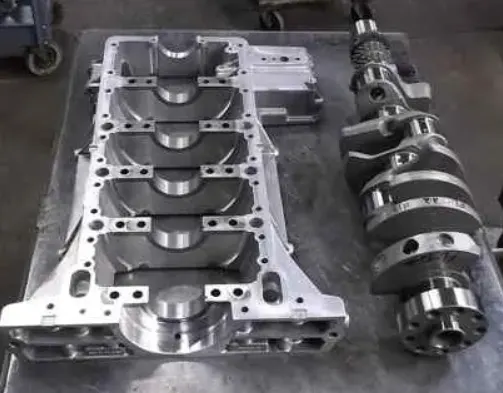
Navigating the road with the S-65 BMW Diesel Engine is not merely a drive; it’s an immersion into a realm of unbridled power and meticulous engineering.
Let me unravel the intricacies of this mechanical powerhouse and its commanding performance as I move forward:
The 4.0-Liter Titan:
Picture the ignition, and you’re at the helm of a 4.0-liter engine—a behemoth of power capable of producing around 420 horses.
The vehicles graced by the S-65—E90, E92, and E93—become not just cars but machines on the brink of supercar territory. This is not just an engine; it’s a declaration of uncompromising power.
Separate Throttle Bodies for Precision:
The S-65 doesn’t just deliver power; it does so with surgical precision. With separate throttle bodies for each cylinder, air intake becomes an orchestrated ballet.
This design choice isn’t just a technicality; it’s a commitment to delivering power with a responsiveness that defines the driving experience.
Aluminum Block for Weight Efficiency:
Delving into the engineering canvas, the S-65 proudly boasts an aluminum block. This isn’t just a material choice; it’s a strategic decision aimed at shedding unnecessary weight.
The result? A lighter engine, enhanced efficiency, and a driving experience that feels more like a dance than a mere commute.
The Power to Impress:
Power delivery with the S-65 is not just a statistic; it’s an experience. The engine produces a whopping 400 Nm of torque—a figure that places it on the cusp of supercar territory.
It’s not just a drive; it’s a demonstration of power that impresses both the driver and onlookers.
MAF Sensor and Thermostat Chronicles:
In the journey of commanding power, the S-65 encounters its challenges. The Mass Air Flow (MAF) sensor, a critical component measuring air entering the engine, occasionally requires attention.
It’s not a sign of weakness; it’s a prompt for maintenance. Similarly, thermostat failures may surface, demanding an investment for continued optimal performance.
The Soundtrack of Supercars:
One cannot delve into the S-65 experience without acknowledging the soundtrack it produces.
The engine’s roar is not just noise; it’s a symphony of power, a sonic declaration of the immense capabilities that lie beneath the hood. It’s an auditory experience that accompanies the visceral thrill of acceleration.
S-65 Features | Details |
Displacement | 4.0L |
Notable Features |
|
Reported Issues |
|
Final Thought:
BMW has left an indelible mark in the diesel engine landscape, showcasing a commitment to reliability, innovation, and performance. While challenges may arise, the collective prowess of these five engines underscores BMW’s dedication to crafting diesel powerhouses that deliver efficiency, durability, and a driving experience synonymous with the brand’s legacy.
As automotive enthusiasts continue to navigate the roads, the legacy of these reliable BMW diesel engines remains an enduring testament to engineering excellence.
Also Read:
7 Most Reliable Mercedes Engines You Can Rely On- Details
5 Reliable Land Rover Engines You Can Surely Count On
7 Most Reliable Audi Engines You Need to Consider
Frequently Asked Questions (FAQs):
What is the best BMW diesel engine in terms of reliability?
The BMW N57 engine is widely acknowledged as the most exceptional diesel powerplant in the annals of the automotive industry. Its cutting-edge technology, remarkable power and torque delivery, outstanding fuel efficiency, and unwavering reliability have garnered numerous awards and accolades.
What do you mean by the best BMW performance diesel engine?
The BMW M340d stands as the swiftest diesel automobile available for purchase.
Is BMW better in diesel or petrol engines?
If your daily driving distance is less than 50 kilometers, opting for a petrol-powered vehicle is advisable. Petrol cars are advantageous due to their ease of maintenance, longer lifespan, and lower initial cost than diesel cars. Conversely, if your daily mileage exceeds 50 kilometers, a diesel car becomes a more viable and economical choice.
Why are diesel engines considered so reliable?
Constructed using robust components designed for longevity, diesel engines are known for their durability. They feature a straightforward yet rugged valve train with harder and sturdier rollers than gasoline engines, eliminating concerns about hydraulic lifter failures.

This is Surya. I am an experienced off-roader. I have been off-roading for many years across several terrains. I am passionate about 4×4 driving and want to share my knowledge and experience with others.
My goal is to provide you with the most comprehensive and unbiased information about off-roading.
I curated this article through my personal experience and expertise, and I hope it helps you with what you are looking for.

 (+91)9123743026
(+91)9123743026
 24/1 Nibedita Sarani. M.B. Road, Kolkata- 700051, India
24/1 Nibedita Sarani. M.B. Road, Kolkata- 700051, India